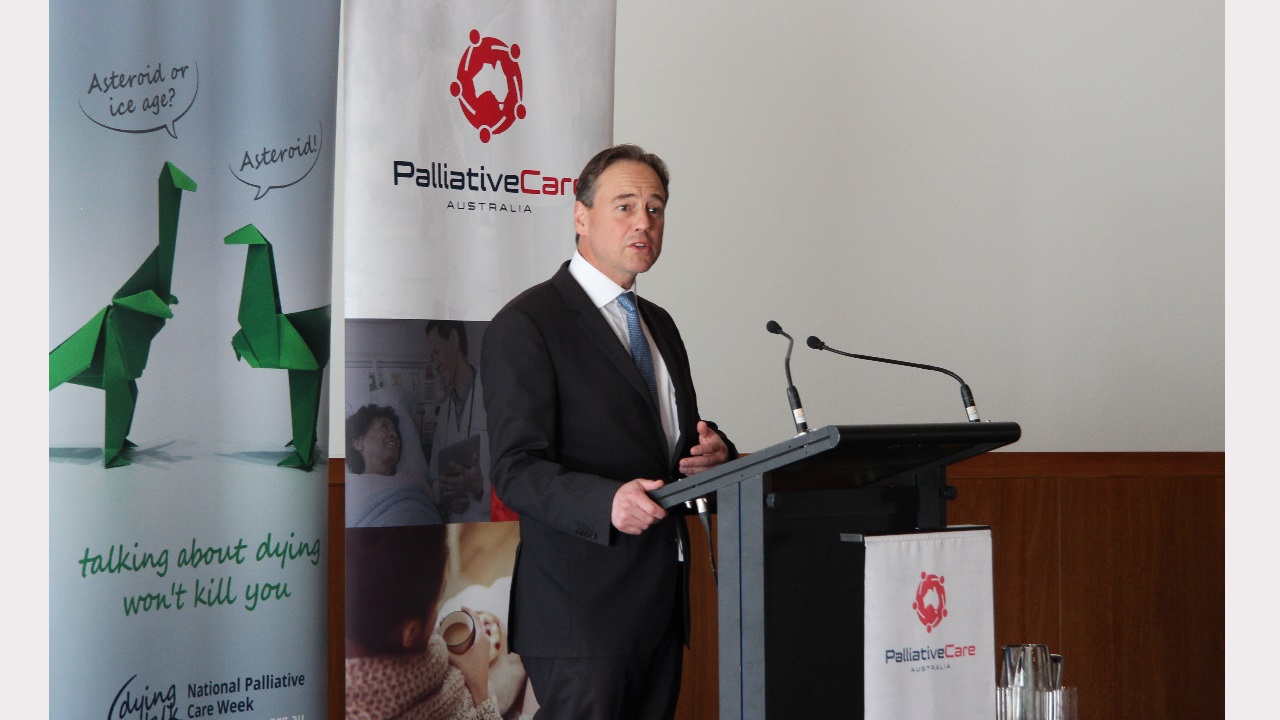Find it hard to express end-of-life wishes? Try new online activities, designed to help
Find it hard to express end-of-life wishes? Try new online activities, designed to help
by Heather Wiseman
Tuesday, May 23, 2017
People wishing to document and share their wishes for end-of-life care can now complete a series of questions online, or play an online card game to inspire and capture their thinking.
Federal Minister for Health, Greg Hunt, launched the new interactive online resources today, which build on Palliative Care Australia’s (PCA) Dying to Talk Discussion Starter.
The new resources, launched during National Palliative Care Week 2017, include a version adapted for Aboriginal and Torres Strait Islander people, which has culturally appropriate options such as visiting or dying on country.
The online discussion starter is broken into small activities which can be saved as they are completed, allowing breaks and time for reflection. Responses can be downloaded or printed at any point, and prompts for reflection are provided for people who are not quite ready to talk.
An online card game also makes it easy to rank issues such as having pain and symptoms managed, or being an organ and tissue donor, in terms of their importance.
PCA CEO Liz Callaghan said since the discussion starter’s launch this time last year, more than 15,000 printed versions had been distributed nationally. The online discussion starter and card game extended the reach of the resource, providing an easy, interactive and accessible way for all Australians to work out what is most important to them at the end of life.
“After you input your answers you can download, print or e-mail them to yourself, making it easy to share your wishes with your loved ones, carers or healthcare professionals.”
Earlier this week PCA published results from a national survey, which found that 85% of Australians believe it is important to have a conversation with family about the care they would like to receive at end-of-life. However, only a third of people surveyed have actually had the discussion.
While 83% of respondents felt it was important to put their end-of-life wishes in writing, only 21% have done this. Of people who hadn’t talked to their loved ones, 35% said the topic made them uncomfortable.
“Despite knowing what they want at end-of-life, some people find it hard to actually express their wishes and have the conversation,” said Ms Callaghan.
She said the online resources will guide people to take action, which is key to their wishes being met.
“We know that if people can talk about what type of care they would want, they are more likely to receive it when the time comes,” Ms Callaghan said.
“These tools support you to work out what would be most important to you and how to raise the subject with your loved ones.”
Minister Hunt launched the new resources at the National Palliative Care Week Parliamentary Lunchbox in Canberra. Both online resources were funded by the Department of Health.
*Please note the online card game is no longer available but rebranded hardcopy resources can be ordered at https://palliativecare.org.au/shop/
Palliative Matters regularly asks guest columnists to answer select questions from the discussion starter. Be inspired by some of our most popular and moving columns, by Russell Armstrong, Molly Carlile, Amy Sagar, Julie McCrossin, Jean Kittson and Maggie Beer.
